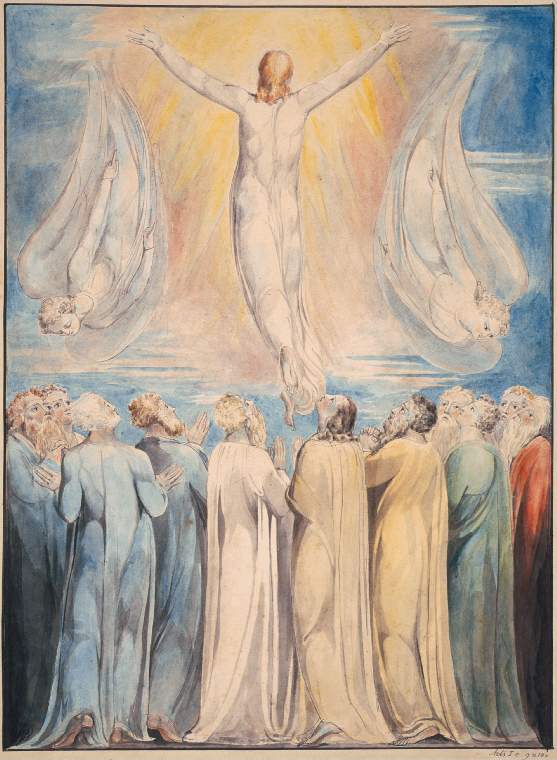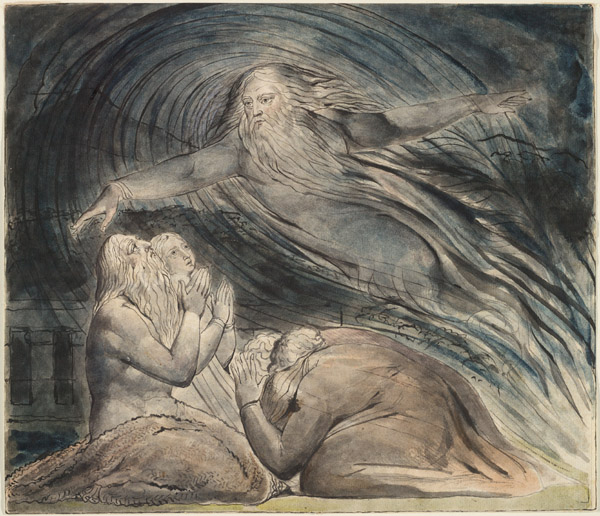Sex
Following his Fundamental Presuppositions Blake, like virtually every mystic and esoteric perceived sex as the primary created duality. Paracelsus may have best described his point; Percival quoted at length a summary in this respect of his viewpoint:-
Woman as such represents the will (including love and
desire), and man as such represents intellect
(including the imagination).Woman represents
substance; man represents spirit. Man imagines; woman
executes. Man creates images; woman renders them
substantial.
The divine man (the angel) is male and female in one;
such Adam was before the woman became separated from
him. He is like the sun; the woman as such resembles
the moon, receiving her light from the sun, and man
without woman (in him) is a consuming fire in want of
fuel.
(This from Franz Hartman, quoted by Percival on page 91.)
In the Christian faith marriage is a sacrament, and for many of us the primary sacrament. However living the sacrament was no more common in Blake's day than in ours. 18th and 19th century England seemed largely to view marriage more as a commercial transaction.
Such a view led Blake to condemn the marriage hearse. He also condemned jealousy.
***********************
Blake never tired of painting the human form, and he usually refused to hide it with clothes. Virtually his only models were his wife and himself. We read that a friend once found them naked in the garden of their home. In all probability they were planning poses and postures for his illustrations of 'Paradise Lost'.
In his early twenties Blake formed an emotional attachment to a young woman named Polly Wood. Unfortunately Polly had other interests, and when he showed jealousy, she asked him if he were a fool. The experience seems to have cured him of jealousy; in fact the foolishness of jealousy became a life long motif; his false God received the name (among others) of "Father of Jealousy".
On the rebound he met a beautiful girl named Catherine Boucher, a gardener's daughter. He told Catherine his mournful story, and when she pitied him, he promptly transfered his affection to her. A year later they were married, a relationship that according to all the evidence seems to have been made in heaven. Illiterate at her marriage, Catherine Blake must have been a gifted and rare person; she had a great deal to do with Blake's enormous creativity. Her high and continuous level of affirmation released Blake from the drain of domestic preoccupations. She affirmed and encouraged his gift of vision even when it meant long hours of wakefulness while he communed with heaven. She provided the appreciative audience that the world in general denied Blake and made him a happy creative artist in the same way that J.S.Bach was happy.
One important influence on Blake's ideology of sex came from certain left wing religious dissenters. The antinomians deeply affected Blake's world of thought. They considered marriage a part of the law which they wanted to abolish. They claimed the right, living above the law, to cohabitate with whomever, whenever and wherever they felt led. We find evidence of similar excesses among fringe groups both in the New Testament and in the 20th Century:
-
Remove away that black'ning church:
Remove away that marriage hearse:
Remove away that man of blood:
You'll quite remove the ancient curse.
(An Ancient Proverb; in Songs and Ballard; Erdman p. 475)
What Blake hated was not monogamy but jealousy and the idea of a lover or spouse as a possession:
-
He who binds to himself a joy
Doth the winged life destroy;
But he who kisses the joy as it flies
Lives in Eternity's sun rise.
(Eternity, in Songs and Ballards; Erdman 474 or Several Questions Answered )
Blake had illustrated two of this lady's works shortly before she wrote a sensational essay called "Vindication of the Rights of Women". Mary Wollstonecraft advocated the radical equality of the sexes, which Blake endorsed. She tried to live in the freedom generally reserved for men (and claimed by few even of them!) Blake was among those who supported her in this endeavor. She lived an adventurous and tragic life and died giving birth to another Mary, who became the wife of the poet, Shelley.
Blake had a very complex psyche one could discuss to exhaustion his various sexual attitude and points of view. According to Damon, who wrote A Blake Dictionary, Blake believed that "the domination of woman is one of the greatest forces corrupting society" (page 447); he quote as follows:
-
What may Woman be
to have power over Man from cradle to corruptible grave.
There's a throne in every man;it's the throne of God;
this Woman has claimed as her own and Man is no more!"
(Jerusalem plate 30, lines 25-28)











